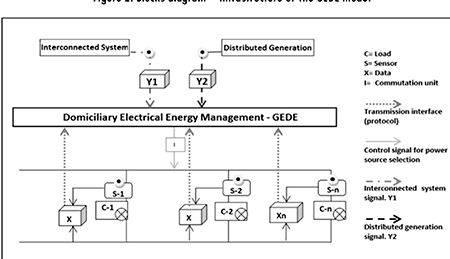
The Renewable Energy and Load Management (REALM) project is a feasibility study to assess the capacity of customers to develop load flexibility in combination with renewable energy: how can electricity customers optimise and integrate variable renewable energy, battery and thermal Nov 07, · @article{osti_, title = {Renewable Energy for Industrial Environmental Management}, author = {Engel-Cox, Jill}, abstractNote = {Costs for renewable energy technologies have declined rapidly in the past decade and their use for residential, commercial, and utility scale electricity has grown exponentially as they become cost competitive DigiNole Home» Research Repository» The Graduate School» Theses and Dissertations. Renewable Energy Generation and Demand-Side Management of Electric Utilities. Full Description; View Document; Title: Renewable Energy Generation and Demand-Side Management of Electric Utilities: Politics, Policy, and Performance. views downloads Author: Rizalino B. Cruz
Renewable Energy Dissertation Topics for FREE
Renewable Energy Generation and Demand-Side Management of Electric Utilities: Politics, Dissertation renewable energy management, and Performance. Cruz, Rizalino B. author Feiock, Richard C. professor directing dissertation Zhao, Tingting university representative deHaven-Smith, Lance committee member Yang, dissertation renewable energy management, Kaifeng committee member School of Public Administration and Policy degree granting department Florida State University degree granting institution.
This dissertation is composed of three essays dealing with renewable energy generation and the demand-side management DSM of electric utilities. The first two essays tackle small-scale and large-scale supply of electricity from renewable sources. The third one looks into the implications of context and ownership form dissertation renewable energy management electric utilities for DSM.
Understanding the politics and policy of renewable energy generation and the performance of DSM programs is the overall theme of this dissertation. The first essay highlights the role of local governments in institutionalizing distributed renewable energy generation by leveraging their authority on land use to permit small-scale systems located at customer site.
It examines the factors shaping policy adoption on distributed renewable energy generation through the lens of transaction-cost politics, dissertation renewable energy management. It teases out the political exchanges and the attendant transaction costs arising from adopting a policy on distributed renewable energy generation. It examines the transaction resources that enable actors to overcome these barriers.
The second essay focuses on renewable energy generated by investor-owned utilities. It examines the transaction costs salient to large-scale renewable energy generation in regulated and deregulated states. It contends that renewable energy generation varies in the way the policy environment shapes the transactions of actors and the way they deal with transaction costs, dissertation renewable energy management. Transactions are specific to the characteristics and location of large-scale systems, the community being served, the political institutions present, and the policies being implemented.
Geographic Information System GIS is used to delineate the service areas of investor-owned utilities as spatial units of analysis. Spatial regression analysis is applied to account for the idiosyncratic nature of electricity supply and the legacy system of vertically integrated utilities.
The third essay examines the contextual drivers dissertation renewable energy management affect the performance of DSM programs, that is, the energy efficiency gains of municipal-owned utilities MOUs and electric cooperatives, dissertation renewable energy management. These factors include the demographic profile and housing stock that characterize the utilities' service territories, and the environmental constituencies, political support, and energy-related polices operating in those areas.
This essay complements existing literature on DSM and energy use, which has largely focused on rationalist models and pro-environmental behavior of individual consumers. It also looks into how the ownership form of electric utilities affects the relationship between these contextual drivers and energy efficiency gains.
Focus is on MOUs and electric cooperatives since DSM programs generally reside in these utilities dissertation renewable energy management are not implemented by third-party entities.
MOUs and electric cooperatives are similar in size and scope but differ in ownership form, governance structure, and internal controls. Demand-Side Management, Electric Utilities, Land Use, Regulation and Deregulation, Renewable Energy, Transaction Costs. A Dissertation submitted to the Reubin O'D. Askew School of Public Administration and Policy in partial fulfillment of the requirements for the degree of Doctor of Philosophy. Richard C. Feiock, dissertation renewable energy management, Professor Directing Dissertation; Tingting Zhao, University Representative; Lance deHaven-Smith, Committee Member; Kaifeng Yang, Committee Member.
Skip to main content. Why should I log in? Open modal dialog. Why Log In? Some of the material in is restricted to members of the community. By logging in, you may be able to gain additional access to certain collections or items. If you have questions about access or logging in, please use the form on the Contact Page. Log In. Toggle navigation Home Advanced Search View All Items About FAQs. All collections All collections.
Search Term. You are here Home » Islandora Repository » Research Repository » The Graduate School » Theses and Dissertations. Style APA Chicago MLA Turabian. Cruz, R. Download PDF 1. Description Title. Date Issued. Public policy Public administration. Date of Defense.
June 23, dissertation renewable energy management, Submitted Note. Bibliography Note. Includes bibliographical references. Advisory Committee. Florida State University.
Renewable Energy Project Finance Basics with Josh Pearson ’97
, time: 1:03:30
of the Department of Energy’s (DOE) program to develop hydrogen production technologies, this thesis investigates hybrid hydrogen production systems. While other fuels such as synthetic natural gas or Fischer-Tropsch fuels may be worth future consideration, the National Renewable Energy Hydrogen Group funded this research and therefore The Renewable Energy and Load Management (REALM) project is a feasibility study to assess the capacity of customers to develop load flexibility in combination with renewable energy: how can electricity customers optimise and integrate variable renewable energy, battery and thermal The National Renewable Energy Laboratory (NREL) is the nation's premier laboratory for renewable energy research and development and a leading laboratory for energy efficiency R&D. NREL is managed by Midwest Research Institute and Battelle. Established in , NREL began operating in as the Solar Energy Research Institute
No comments:
Post a Comment